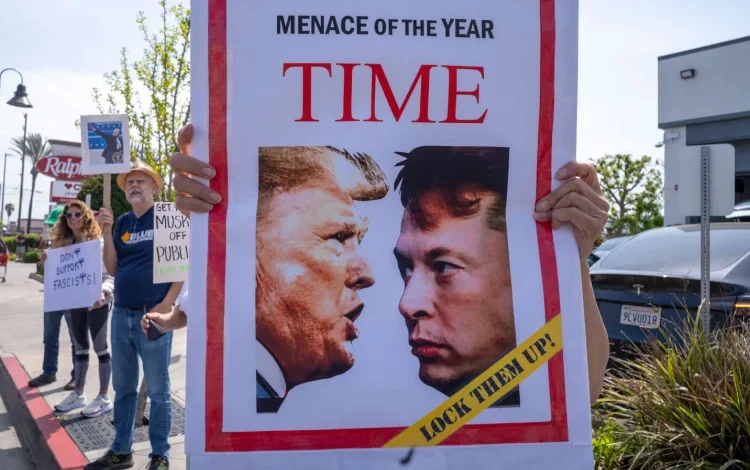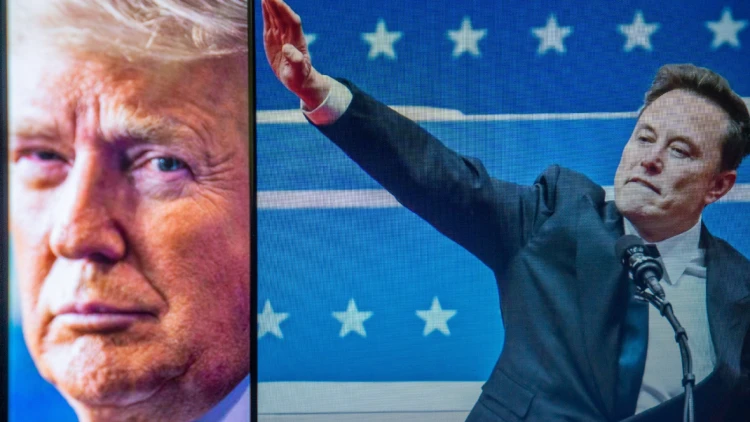
Trump vs. Musk: The Fallout That Could Redefine How Tech Does Business With Washington
Their High-Profile Split Could Reshape How Tech Firms Engage With the White House And Secure Federal Contracts
The uneasy alliance between Donald Trump and Elon Musk has gone up in flames, and the fallout is shaking the ground under the tech industry’s relationship with Washington.
Once political allies with overlapping interests—money, influence, power—they’re now trading blows in public. Trump kicked things off by accusing Musk of backstabbing and promising to pull the plug on billions in federal contracts with Musk’s companies, including SpaceX and Tesla.
Musk responded with a social media barrage, taking aim at Trump’s prized budget proposal and dropping a cryptic bombshell about Epstein-related documents that allegedly include Trump’s name.
Things escalated fast—and now the ripple effects are landing hard in boardrooms and government offices across the country.
Government Money, Musk’s Machines

This isn’t some symbolic feud. It’s real money and real infrastructure on the line.
SpaceX has been launching military satellites and crewed NASA missions for years. Tesla has leaned heavily on government support to accelerate the rollout of electric vehicles across the country. Starlink, Musk’s satellite internet company, is tied to major rural broadband programs.
According to a Congressional Budget Office estimate from last year, these relationships were worth over $38 billion in federal dollars.
That cash flow is suddenly under threat. Trump’s latest comments from the Oval Office—and louder echoes on Truth Social—were blunt: “We can save a fortune by cutting Elon off.” Markets took him seriously.
Tesla’s stock dropped nearly 20% within a day. Musk later softened his tone on suspending space operations, but the signal was clear: this partnership is broken.
Inside the Panic
Behind closed doors, top officials at NASA and the Pentagon are scrambling. A senior defense official, speaking off the record, put it simply: “Nobody else can do what SpaceX does right now. You don’t just cut them off and call Amazon.”
NASA, meanwhile, is in a bind. Musk’s rockets aren’t just one option—they’re the option for getting astronauts into orbit on a regular schedule. Any major disruption to that supply chain creates real risk.
And yet, from the White House, there’s no sign of slowing down.
The reaction from tech leaders has been sharp—and cautious. In group chats and private calls, executives are reevaluating just how close they want to get to the federal government. One aerospace CEO, whose company has competed for the same defense contracts as SpaceX, summed up the mood: “This just changed the rules. Getting too close to a president might be a liability now.”
For years, being in the room with power was good business. The Musk-Trump implosion is a reminder that those handshakes can turn into hand grenades.
A Dangerous New Precedent
There’s a rising unease over the notion that federal contracts could be turned into political weapons. Even some of Musk’s usual detractors are cautioning against making this kind of punishment routine.
“This isn’t just about one guy losing contracts,” said Cynthia Morales, a policy expert at the Brookings Institution. “It’s about whether we’re going to start punishing companies for disagreeing with the president.”
That kind of instability doesn’t just spook billionaires. It chills investment, slows innovation, and pushes startups to think twice before engaging with government at all.
There’s no easy resolution in sight. Musk is making it clear he won’t play nice. And in the middle are federal agencies who depend on his companies to do their jobs.
Maybe cooler heads will find a way to de-escalate. Or maybe this moment rewires how public-private partnerships work in America going forward.
[Sources]




